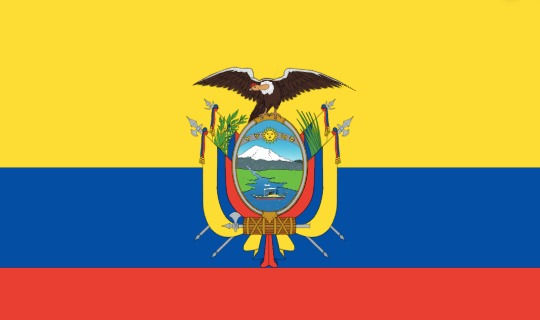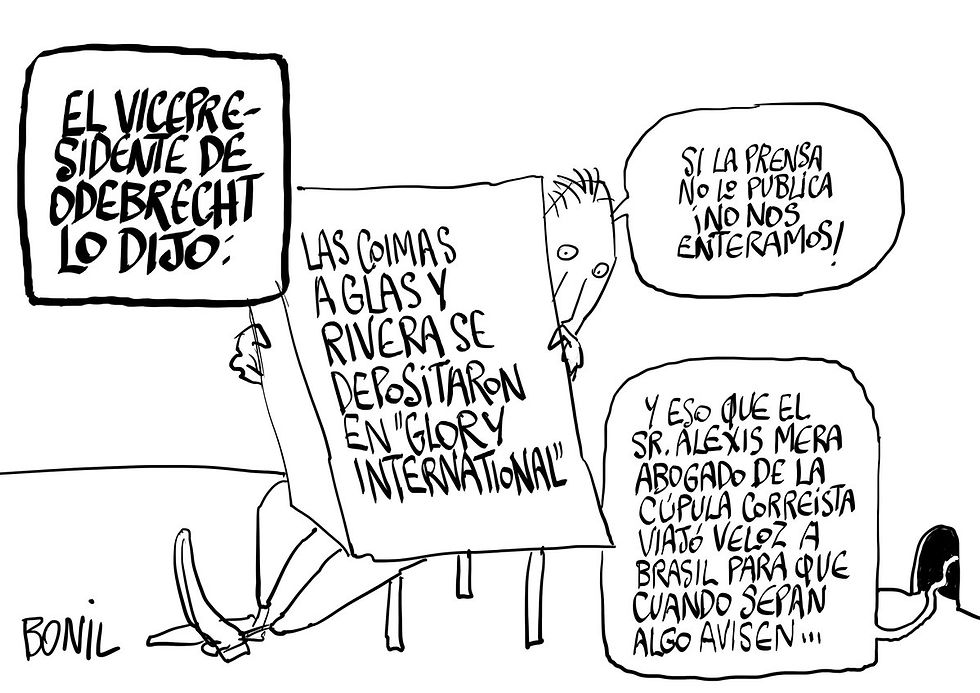Informal Practices in Ecuador: "Sapada"
- Adriana, Yvonne & Ludovic
- Nov 21, 2019
- 3 min read
Keywords: higher prices, surplus, bribes, contracts

Overview
Being a colloquial term “ sapada” it has no formal definition, however informally it means when something illicit is done to gain advantage on something. Either is paying a government official with a bribe or paying a police officer to not receive a citation, or cheating in an exam language wise is a very widespread term. However, it is mostly used in Ecuador to describe corrupt practices that involve the government in some way.
Formally its is known as “Sobreprecio” or “reajuste de precios. Which roughly translates to the idea of a mark up, extra charge, overcharge, surcharge and price premium. In this practice, when a contract is made, higher prices are given to be able to execute it . At the end that money is received by the person in charge. In the same way, it is possible to negotiate a readjustment of the prices established in the contract . Therefore, when the price of the contract increases and the surplus is given to the different entities involved. Here two entities are involved. The government official who gives the contract, whom is informally known as “ el contacto”( the contact) or “el de adentro” (the one inside) or “el amigo” ( the friend) because its him who has the influence from the inside. The second entity involved is the private company/ business/ individual who receives the contract. Both can be known colloquially as “socios”. ( Partners)

Normally, “sobreprecios” are done along with other informal practices such as “amarres”
( government contracts made with ghost companies which belong to government officials ) or “cariños” ( which means awarding someone a contract out of personal relationship with them ) so exploring cases of corruption will mean we see a number of informal practices at play with each other.

In Ecuador, there is some well-known cases at government level where this practice exists. For example, the Odebrecht case. The construction company has admitted to paying bribes to win contracts in a number of countries. The Vice-president Glas awarded public contracts in return for payment. It is estimated around $20 million were paid in bribes. “Sapada” was used when intermediary companies or providers, who were hired by Odebrecht, laundered their money. Basically, they overcharged Odebrecht for their services and then they gave this surplus back to them. Additionally, this surplus went to government officials as gifts from Odebrecht. In this way, they gave money to government officials, intermediaries and private individuals to gain contracts for public projects in Ecuador through bank transfers or cash. In official documents this surplus or the extra values are accounted for as “planificacion fiscal” ( fiscal planning) . The newspaper “El universo” reported that Ecuador had lost around $2.5 billion in “sobreprecios”.Projects such as refineries and gas plants were executed in contracts of around $5 billion, when the UN estimated they could have easily done at around $2.5 billion, roughly half of what was paid. Some of the projects, were not even completed to their full capacity that was stipulated in the contracts, showing the extent of corruption in bureaucracy.
Changing the original values of contracts is also a common practice, this is called “ reajuste de precio”. For example, Odebrecht was awarded the construction of a Polyduct in the city of Cuenca. They estimated, along with a consulting ( and also corrupt) company, that the cost would be of $250 million. At the end they ended up reporting a $623 million cost due to “structural difficulties”. It is worth noting that now it works at 30% of the original estimated capacity. This was the case with many projects, as illustrated in the graph below.
📷






Comments